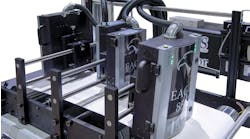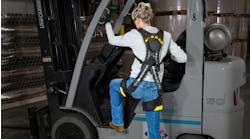It turns out that the chief procurement officers (CPOs) are pushing through the gates they usually sit behind and are moving into the role of innovator.
CPOs are actively reshaping their roles in the leadership suite to provide a positive impact on the growth and maturation of their company, according to a recent study by the IBM Institute of Business Value.
These executives are quite active and are nearly twice as likely to introduce new innovations into the company and 1.5 times more likely to have influenced senior leadership to enter a new market than their lower performing counterparts.
“The most advanced CPOs are proving that focusing on the nuts and bolts of procurement processes is not enough to bring real value to the business,” said Terrence Curley, director, Strategic Supply Management, IBM. “True procurement leaders who see the bigger picture can use their unique vantage point in the organization to drive innovation, grow revenues and expand competitive advantage. The results of this study can serve as a road map for all CPOs to follow who want to provide a real impact on the future of their company.”
Read more on the company innovator on Material Handling & Logistics.
Material Handling & Logistics is an NED companion site within Penton's Manufacturing & Supply Chain Group.











